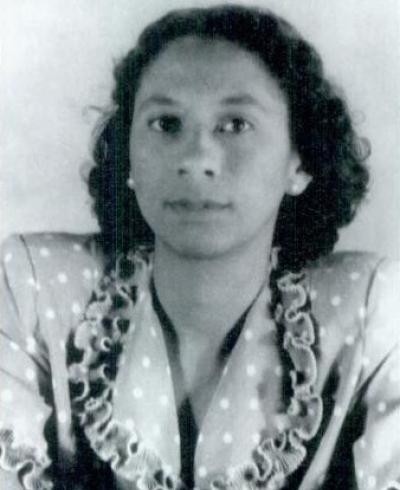From "NCpedia"
John Harvey Wheeler, black businessman and civil rights leader, was born in Kittrell on the campus of Kittrell College, an African Methodist Episcopal church school of which his father was president. His mother was Margaret Hervey Wheeler. The elder Wheeler (John Leonidas, 1869–1957), a graduate of Wilberforce University and the University of Chicago, gave up his academic career in 1908 for an executive position with the North Carolina Mutual Life Insurance Company in Durham. As the firm expanded throughout the South to become America's largest black business, he was transferred to Atlanta to direct the Georgia district. There John H. Wheeler spent his early years, attending the Atlanta public schools and graduating summa cum laude from Morehouse College in 1929.
In the same year he left Atlanta for Durham, where he went to work for the Mechanics and Farmers Bank, a sister institution to North Carolina Mutual. Under the tutelage of Richard L. McDougald, bank president and community leader, Wheeler adopted a model of black leadership. In 1952 he assumed the presidency of Mechanics and Farmers Bank. But for Wheeler, as for McDougald before him, the bank served as a base for action that ranged well beyond providing financial services. Much of this higher purpose was a given in Afro-American culture, the special burden of race relations.
Even in the day-to-day granting of loans to black citizens, Mechanics and Farmers was more than a bank. Under Wheeler's direction it became an instrument for social change, making possible the purchase of decent homes, the acquisition of federal loans for housing projects, and the relaxation of racial barriers among white banks that learned from Wheeler that black borrowers were good risks. Wheeler was never content, however, to work for change through economic uplift and indirect means. Happily for him, black Durham offered support and inspiration for direct politics.
In 1935 he joined others to found the Durham Committee on Negro Affairs, a black political organization that became one of the South's most effective local movements in the struggle for reenfranchisement, civil rights, and economic justice. It was in the DCNA that Wheeler served his apprenticeship and developed his mastery of New South politics. He presided over the committee from 1957 until his death, generally choosing to work behind the scenes as strategist and statesman.
His choice of political style may have been limited, however, because he typically stood ahead of the times and was judged as too radical for the DCNA to put forward as a candidate for public office. His reputation for "radicalism" stemmed from his efforts to build a local coalition of black and white workers, from his battle to integrate The University of North Carolina and the Durham public schools, from his unflinching endorsement of the sit-in movement, and, overall, from his lifelong demands for full equality. It would be correct, for example, to consider the completion of his law degree from North Carolina College in 1947 as instrumental to his quest for justice rather than as a supplement to his banking career. In a theoretical sense he played a key, functional role in the racial politics of the New South, especially in the difficult years before 1964. In these "forgotten years," figures like Wheeler made the "impossible" demands out of which "safer" black leaders could negotiate the "possible," and out of which younger black leaders could find a historical base to continue the process.
By the 1960s history began to fall into step with Wheeler, and public recognition quickly followed. In 1961 President John F. Kennedy appointed him to the President's Committee on Equal Employment Opportunity; in 1968 President Lyndon B. Johnson assigned him to the National Housing Corporation, a body created by the Housing and Urban Development Act of 1968. In the meantime the federal government had commissioned him to tour West Germany as part of a team evaluating the long-term effects of the Marshall Plan. In 1966 the State Department sent him to Egypt and Syria as a consultant and lecturer. His relationship with President Johnson earned him an invitation to participate in the drafting of the civil rights legislation of the 1960s. During the period 1963–68 he also served as president of the Southern Regional Council.
Such recognition in the nation and abroad made it difficult to deny him visibility at home. In 1964 he became North Carolina's first black delegate to the National Convention of the Democratic party; he continued his formal role in the state party and eventually served as its financial director. In 1970 Duke University awarded him an honorary doctor of humanities degree. In his personal life Wheeler was an ardent tennis player and an accomplished violinist. His friends and colleagues remembered him as a renaissance man and a few months after his death established the John H. Wheeler Foundation, with the first Wheeler Scholarship awarded in 1979. He married Selena Warren, and they had two children, Warren Hervey and Julia. Wheeler was a life member of the NAACP and a member and trustee of St. Joseph's AME Church in Durham; he belonged to Omega Psi Phi fraternity and was a Mason and a Shriner. He was buried in Beechwood Cemetery, Durham.



Submitted by Brandon Winford (not verified) on Fri, 2/14/2014 - 9:37am
Good morning,
This is a great site! It has helped me tremendously. I'm a doctoral student at UNC-Chapel Hill finishing a dissertation on John Hervey Wheeler and would love to share more insights about him at some point in the near future.
Take care,
Brandon
Add new comment
Log in or register to post comments.